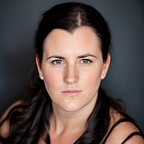Abusive Family Court Judges: Accountability Required
There is an abusive family court judge now ‘educating’ on family violence & abuse. Principal Family Court Judge, Jacqueline Moran, apparently doesn’t think that’s a problem
I practiced as a lawyer until 2016. In the last few years of practice, this was in a regional court, where everyone knew everyone. That also meant I appeared regularly in front of one of the resident judges there: Stephen Coyle.
In spite of our professional relationship, in 2016, Judge Coyle took it upon himself to reserve my personal family court case to himself. He hadn’t had any previous involvement in the case on any substantial level, so there was no clear reasoning behind the decision.
There was however (because of our professional relationship), an obvious and serious conflict of interest, yet he refused to recuse himself; going so far as to claim that he didn’t remember who I was or if I had ever appeared in front of him in a professional capacity. Since I appeared in our regional court daily, where he was a resident judge, it was a bit of a leap on his part.
In a similar case (G v N [2018] NZHC 2763), Coyle was also criticised by the High Court for continuing to act where there was a…
